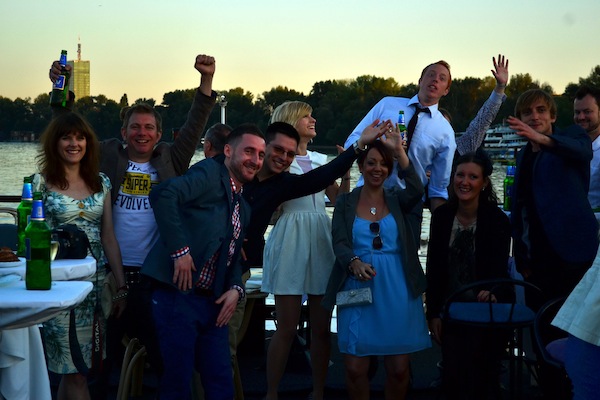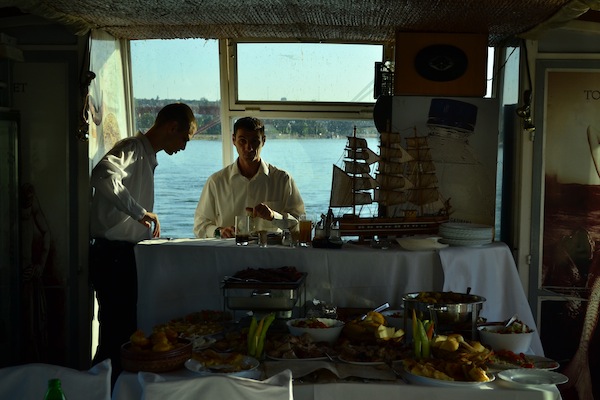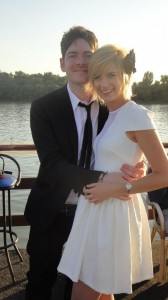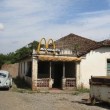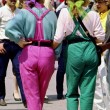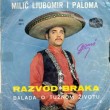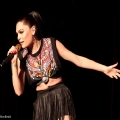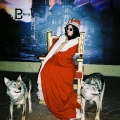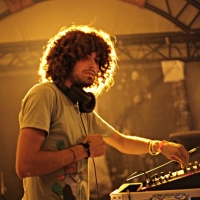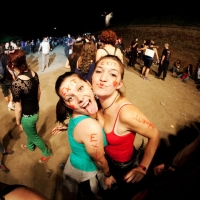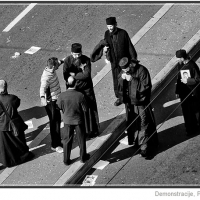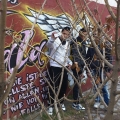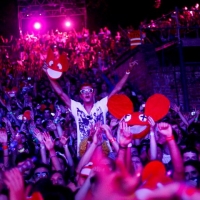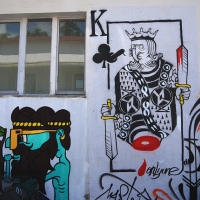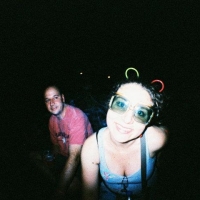‘The wild dark Balkans might enthral orientalist romantics but that prescription was never correct, Belgrade for me is one of the best European cities, as placed and transient as any other’
‘Belgrade…because I love it’ says the map they give us in the hostel. The sentiment spreads with the sunlight across the Splavovi and our beer washed minds speculate about the complexities of the relationship between a man and women who sit in their boat there; he casts his lines downstream while she faces upstream catching the last Serbian sun on a day that has this British wedding party warming and ready by the contrasting weather alone; just two hours from the grey stained September skies of Luton.
The man in the boat catches a small medallion of silver we assume is a fish. From our floating hostel we cheer wildly applauding his patience and endeavour. He ignores us but his bemused lady friend throws a glance. I would forgive her the question: ‘Why are British people always so drunk?’.
We parallel the Sava and cross Brankov Most to meet the bride and groom. We stroll in the evening and anchor ourselves with great plates of Serbian meat at the celebrated Three Hats where waiters smile and nod at our sincere “dobro veche’s”, “hvala’s” and raw enthusiasm for Jelen beer. An askew glance through an open backroom door reveals those waiters enjoying a cigarette break in the smokiest of spaces, their black and white outfits echo downtime film noir; outside the fiddles and dances on cobbles of Skadarlija fade into the soundhaze, like the smoke drifting from an old cinema auditorium, or from the film itself: eternal streetlamps of Europe, the generic cultural image replaces specific memory …
Rakija and Jelen ally and we are joined by my Belgradian friend. She is an Opera singer and Professor of Culture and knows things. After flirting with whisky-pushing glam girls we take table and chair at a café and order Long Island ice tea, because we have escaped from London so they’re cheap and so are we.
Then to the barges – we choose the most piratey looking one, a battered wooden lady, whose indie revellers are probably not all that’s been inside her. She’s berthed amongst the gaudy jewel bedecked tarts, glass, flashing, rammed and empty. Guetta’s bitches. Hoping to avoid the lottery of Balkan music we shuffle and shift like so many fools on so many sticky dance floors. Outside, dodging people who have confused computer games with controlling real motor vehicles we boldly ignore local advice and take a taxi. Two wrong turns and the meter goes Weimar Republic. The driver’s abortive mugging attempt resembles more recent times; the more portly economies unable to chase down the debt laden runaways. Global fiscal law: avoid dodgy taxis unless you want a cranium depression and significantly painful deficit. I thought this kind of thing only happen in Nottingham.
The next day the man and the woman are still sharing the small boat on the Danube. She reads, he fishes. The wedding boat leaves from Beton Hala and rolls with the afternoon down the Sava, under Most na Adi, the new bridge whose spire shines silver in the sun, a beacon above calm waters.
On the Danube and around Veliko Ratno Ostrvo (Great War Island). More smiles, more food, more Jelen and more love. Where the two rivers meet, blending in the shade of Kalemegdan’s rose walls the marriage took place. The Danube joined by the river Diff of the Welsh capital. The ceremony could only be described as a triumph; a meeting in itself between British formality and Serbian soul. The obstacles of translation were overcome in all but words.
Off the boat, across the tracks and into the club, the owner has been sitting quietly on the boat’s top deck all afternoon sipping rum. He resembles a Serbian David Gilmour and is your friend. The music is fast and the talking long and the DJ smiles and plays for us all night and people dance then fall asleep, then get up, then lie down on the dance floor and then sing and then drink some more and shout ‘cheers’ and ‘nazdravi’ and speak broken Serbian and hug each other and lament the passing of many a great band and the competitive dancing begins in earnest and ends in glory and night is the history of a diamond, compact, intense and beautiful and at the sunrise there is breakfast and people smiling, knowing their memories are good.
The next day, after exploring the city on bikes there is just cheap German beer and cards on the river, waving at the passing boats. The couple in the boat are still there in the morning, ready for another day of glorious idleness. The hosteless explains the pitfalls of passport registration protocol and offers us home made cigarettes. Above loose chevrons of migrating birds silently piston across the deepening blue, their transit graceful as the crescent moon.
Early departure and the coffee granules grate in my empty stomach. Luton is smothered in fog through which unseen planes roar disconcertingly. More weddings should happen on boats in Belgrade, in fact more everything should. The wild dark Balkans might enthral orientalist romantics but that prescription was never correct, Belgrade for me is one of the best European cities, as placed and transient as any other. A wedding is many things, none more so than a confluence of experience and an unhappened future and the best excuse for a party, just like Belgrade.
*The Café was Smokvica, the barge was Povetarac and the club we partied in was Zica (‘The Wire’)

